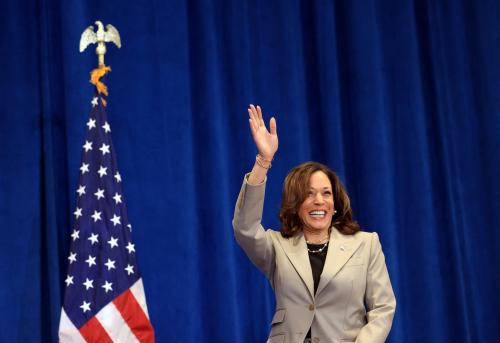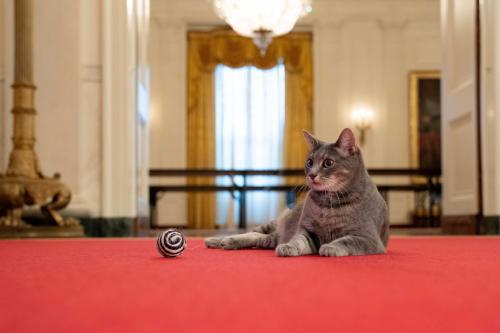It wasn’t long after President Joe Biden withdrew from the 2024 presidential campaign and endorsed Kamala Harris for the Democratic nomination that race-and gender-based innuendo cascaded over social media and digital platforms. Among the first attacks to appear was GOP nominee Donald Trump’s nickname for Harris as “Laffin’ Kamala,” later altered to “Lyin’ Kamala.” In short videos and memes, he and his conservative supporters also ridiculed her laugh and argued that it demonstrated she was not a serious or knowledgeable person. Critics derided what they called a “cackling” laugh, similar to what Trump did to Hillary Clinton during the 2016 race.
The same thing happened with videos of Harris dancing. Over the years, in informal gatherings, the Vice President has swayed, danced, and jumped around for her personal enjoyment. Opponents now are flooding TikTok with pictures of her dancing uncontrollably and making her look like a rowdy and irresponsible teenager. The ridicule corresponds to the way in which Finnish Prime Minister Sanna Marin was hounded from office after a video of her dancing spread through social media.
There’s nothing new about this. As we note in our book, “Lies That Kill: A Citizen’s Guide to Disinformation,” there has been a long history in the United States of making fun of African Americans (as well as women), and this has had dire consequences for them. They have been the objects of dangerous disinformation that stereotyped them as racially inferior, violent, and irresponsible. Leaders sometimes proposed heinous policies such as forced sterilization, denial of due process, or a loss of basic rights due to their supposed inferior status.
It therefore is risky to see so many nasty tactics surge following Biden’s announcement. In a short period of time, Harris has been called a “DEI candidate” (meaning diversity, equity, and inclusion), a bimbo, and someone with low intelligence. Senator John Kennedy (R-La.) recently claimed in a Fox TV interview that Americans “have concluded that Vice President Harris is not capable, that when her IQ gets to 75, she should sell.”
A number of TikTok videos are using a recent sarcastic line from one of her 2023 speeches (“you think you just fell out of a coconut tree”) to claim she makes nonsensical statements. Harris uttered that line at an education equity forum and was making a broader point about how educational success depends in part on financial resources. She drew that line from her mother to explain why young people need financial assistance and sometimes can’t succeed purely on their own. Yet used out of context, as it currently appears on TikTok videos, the sentence sounds disjointed and creates the implication Harris is not fully in control of her faculties.
Even worse, Republicans now are saying they will “Willie Horton” Harris, similar to what George Herbert Walker Bush did to Michael Dukakis in 1988. In that campaign, GOP operatives used very racially-tinged images of Horton to make the case that Dukakis was soft on crime and easy on African American offenders. As noted by Marc Caputo of The Bulwark, Trump organizers already have found examples of individuals paroled by prosecutor Harris who went on to commit violent crimes.
It is less than four months before the general election and the average of national polls shows a very tight race. But with America’s well-documented divisions and the fast rise of Harris as the likely Democratic nominee, racist and sexist tropes are likely to escalate in nature and become a dominant part of the fall landscape. There already is a fake picture of Harris in a swimsuit hugging convicted sex offender Jeffrey Epstein in an effort to smear her reputation.
In 2016, Trump used such arguments to good effect against Hillary Clinton. He ridiculed her laugh, gait, and personal appearance to undermine her credibility and make her look like a less appealing and qualified candidate in the eyes of some voters. This messaging to America’s lowest elements harkens what probably will become one of our nastiest campaigns. This election is likely to be especially nasty as the tools of disinformation, especially deepfakes, have gotten better and cheaper, and the tools to spot disinformation can’t keep up with its creation. In today’s world, a polarized public is still learning to be aware of stuff that comes their way no matter how crazy. This means the race could be decided based on racist appeals, blatant falsehoods, or organized disinformation.
We recommend in our book that news consumers should take several steps to protect themselves. When they are viewing online information, they should check to see if it is a partisan or nonpartisan site, what the reputation of the media outlet is, whether it is a U.S. or foreign source, and if it appears to present information in an objective manner. It is hard to find reliable sources of information about any major candidate in the middle of a contentious election campaign, but viewers should focus on reputable sites that have a demonstrated track record of providing fair and unbiased material to their readers.







Commentary
Race remains the ugly underbelly of American politics
July 30, 2024